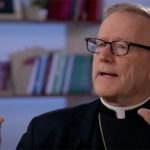South Korea’s energy policy under its new president must move beyond pragmatic diplomacy to embrace consistency, clarity, and conviction.
South Korea’s return to the global stage under President Lee Jae‑myung comes with the promise of “pragmatic diplomacy”—a balancing act aimed at advancing national interests over ideological conformity. Nowhere is this more evident than in the energy sector, where the Lee administration has simultaneously signaled that it is serious about reform, cautious on nuclear, and ambitious in international engagement.
A key early signal was Lee’s decision to nominate Kim Sung‑hwan as Minister of Environment (MOE), a role that is to be merged into a new Ministry of Climate and Energy (MCE). This will combine the energy policy division of Minister of Trade, Industry and Energy (MOTIE), the climate and carbon division of MOE and oversee climate and energy policy. Kim, a three‑term lawmaker and co‑architect of Lee’s energy and climate pledges, has been a leading advocate for a so-called “nuclear phase-out” and renewable energy expansion. So, his appointment underscores Lee’s desire to let environmental imperatives shape energy policy.
Yet that signal was quickly complicated by another key appointment. Kim Jung-kwan, the head of Doosan Enerbility, became MOTIE just days later. While Kim Jung-kwan certainly has a longer career background as a bureaucrat in the economic sector than in nuclear industry per se, the appointment of the head of “a company that is leading the nuclear renaissance in South Korea as minister of industry after the anti-nuclear environment minister raises questions about where the Lee administration’s energy priorities truly lie.”
This confusion within the administration reflects a contradictory attitude. It is seeking to curtail nuclear power at home while continuing to promote its exports abroad. In April, Korea Hydro & Nuclear Power secured a contract to build two APR‑1000 reactors in the Czech Republic. This was more than a sales triumph—it was a diplomatic one. It positioned South Korea as a credible alternative to Russia or China in global nuclear markets. But the deal’s success was contingent on U.S. cooperation under the 123 Agreement, and future exports will similarly depend on strategic alignment between Seoul and Washington.
Domestically, Lee’s energy strategy remains anchored in his campaign manifesto, which centered on an “energy highway.” He promised to build smart, resilient energy infrastructure that blends green energy with digital technologies. This vision is not mere political rhetoric—it reflects a desire to modernize South Korea’s energy system through integrated renewables, storage, grid reform, and digital innovation. Yet, actualizing this requires both institutional confidence and clear mandates—elements still lacking in the early stages of the ministry’s establishment.
The new administration’s positioning at the G7 summit reinforced this mixed narrative. Lee emphasized energy security, supply chain stability, and the integration of AI into the energy ecosystem. He pledged to build a “stable, economical, and reliable energy system” and vowed to deepen cooperation on critical mineral supply chains and AI‑driven grid resilience. These commitments signal ambition, but they also underscore the need for delivery on benevolent diplomacy, domestic alignment, and policy follow‑through.
This is where pragmatism risks becoming paralysis. Energy systems do not reward ambiguity. South Korea needs long‑term clarity on nuclear energy, renewables, and energy digitalization. A ministry dominated by environment‑first governance—while noble—must guard against stifling innovation or slowing critical supply‑chain development. Minister Kim’s leadership may tilt priorities toward decarbonization, but without concrete targets for nuclear or renewables capacity, the policy mix risks imbalance.
The Czech deal offers a model for a coherent energy strategy. It demonstrated how domestic capability, export diplomacy, and allied cooperation can be aligned. The contract combined reactor sales with training, fuel‑cycle assurances, and financing—a package deal that required not only technical excellence but sustained political backing from both Seoul and Washington. For South Korea to replicate this success elsewhere, it needs a consistent narrative composed of new domestic projects, stable regulatory frameworks, and clear positioning within the Western nuclear export regime.
If the Lee government is reluctant to support domestic new builds (including SMRs) or signals complacency about nuclear energy, foreign buyers may interpret that as a lack of resolve. This impression can be further reinforced by the recent decision to dismantle the Kori-1 reactor, South Korea’s oldest commercial nuclear unit, which ceased operations in 2017. On June 25, the Nuclear Safety and Security Commission gave final approval for the decommissioning plan—marking South Korea’s first full-scale nuclear dismantlement.
Ambition abroad requires conviction at home. Similarly, renewables and increased reliance on fossil fuels cannot fill the gap if nuclear energy is sidelined without viable alternatives. Offshore wind, green hydrogen, and digital grid architecture are essential—but only if backed by financing, regulation, and measurable rollouts.
The Czech contract was a victory born of coherence—of alignment between domestic competence, diplomatic credibility, and allied coordination. Future wins, whether in the Middle East, Europe, or Southeast Asia, will demand the same convergence. President Lee’s vision of pragmatic diplomacy has potential, but pragmatism must evolve into principle. Energy leadership requires more than balanced rhetoric; it requires long-term consistency, institutional clarity, and strategic conviction. Without them, South Korea risks forfeiting its hard-earned leadership—not due to a lack of ambition, but due to a failure of alignment.
About the Author: Eunjung Lim
Eunjung Lim is currently a Professor at the Division of International Studies, Kongju National University (KNU). She served as Vice President for International Affairs, Dean of Institute of Korean Education and Culture, and Dean of Institute of International Language Education at the same university (June 2021 – May 2023). She previously served as a board member of Korea Institute of Nuclear Nonproliferation and Control (KINAC) from May 2018 to July 2024 and currently serves as a member of Policy Advisory Committee for Ministry of Unification. She is also a member of the governing board of Asia-Pacific Leadership Network, and a member of the Subcommittee on Energy and Just Transition of the Presidential Commission on Carbon Neutrality and Green Growth. She earned a B.A. from the University of Tokyo, an M.I.A. from Columbia University’s School of International and Public Affairs, and a Ph.D. from Johns Hopkins University’s School of Advanced International Studies.
Image: Shutterstock/patrice6000

















